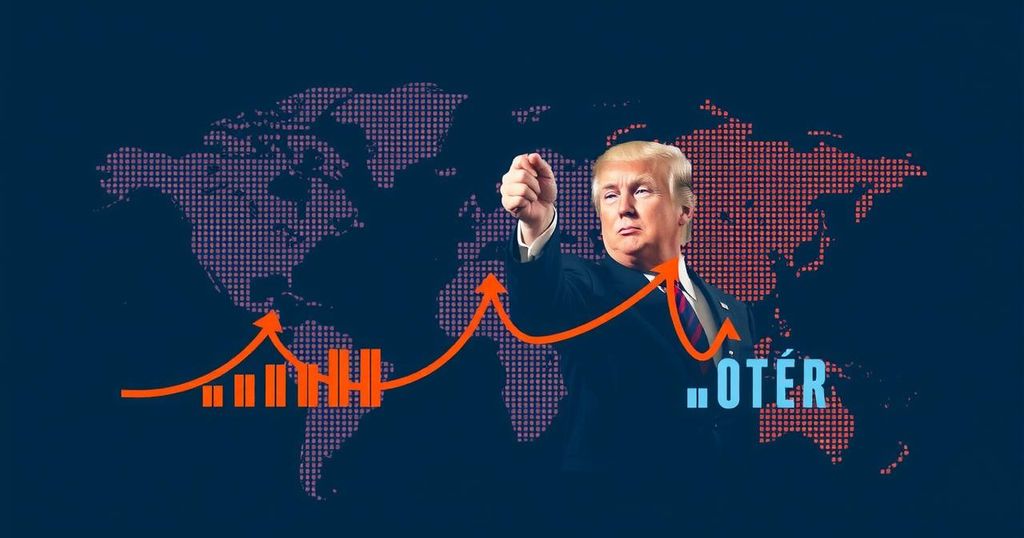Donald Trump’s re-election raises concerns over the global economy due to potential tariffs that could significantly impact GDP growth. Analysts predict that the proposed tariffs may lead to a slowdown in global economic growth, alongside challenges for emerging economies. Additionally, the strengthening U.S. dollar and the politicization of the Federal Reserve present further concerns for international financial stability.
The re-election of Donald Trump as President of the United States has ushered in a climate of uncertainty for the global economy, signaling potential challenges ahead. Upon the announcement of Trump’s victory, accomplished through strategic wins in key swing states like Georgia and Pennsylvania, analysts began to evaluate the implications of possible economic policies he may enact. Trump’s inclination towards protectionism, evidenced by his proposals for substantial tariffs on imports, raises concerns about the ramifications on global trade and GDP growth. With plans that include tariffs of at least 60 percent on Chinese imports and 10 to 20 percent on goods from other nations, the potential impact on international commerce could be considerable. Historical comparisons reveal that such tariffs resemble those implemented during the Great Depression, escalating proactive measures against trade partners. Should these tariffs materialize, UBS estimates a possible reduction of global economic growth by one percentage point by 2026, alongside notable declines in GDP for major economies such as China and the European Union. Moreover, emerging economies like India and Brazil may also face slight decreases in their GDP, further testing their resilience in an already strained global landscape. A crucial factor in this analysis is Trump’s unpredictability regarding policy execution, which complicates forecasts. His past statements on tariffs, labeling them as “the most beautiful word in the dictionary,” declare a clear stance on protectionism. Additionally, the strengthening of the U.S. dollar is anticipated due to higher tariffs and inflation, complicating import costs for other countries while straining their dollar-denominated debts. The politicization of the Federal Reserve under Trump’s administration could further destabilize the financial landscape, as concerns grow regarding the independence of the central bank and its impact on global monetary systems. Ultimately, financial markets are approaching the coming terms of Trump’s presidency with caution. Analysts fear that undermining the Federal Reserve’s credibility might lead to destabilization of not only the U.S. economy but also global financial relations, with inflation rates and interest yields likely to rise dramatically, presenting a precarious situation for all. Trump’s economic strategies, if realized, could indeed reshape the contours of global trade and economic cooperation—fostering uncertainty in an increasingly interconnected world.
The article discusses the immediate and potential impacts of Donald Trump’s re-election on the global economy. This context is particularly significant given Trump’s historical inclination toward imposing tariffs, specifically during trade disputes with nations such as China. The implications of protectionist policies, currency fluctuations, and the politicization of the Federal Reserve are all critical elements of the anticipated economic landscape under Trump’s renewed leadership.
In conclusion, the re-election of Donald Trump heralds a period of uncertainty for the global economy, with the potential for significant economic disruptions stemming from major tariff proposals and a strengthened U.S. dollar. Analysts emphasize the challenges that emerging economies may face alongside established powers like China and the EU. The overarching concerns surrounding the independence of the Federal Reserve add another layer of complexity to the financial forecast, warranting careful observation of developments in international trade and economic policy as Trump’s term progresses.
Original Source: www.aljazeera.com






